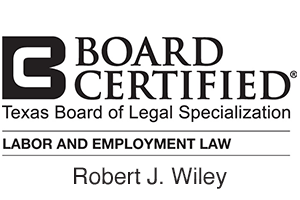in Austin, Texas
Severance Negotiations
Severance Pay
Workers receive severance pay for a variety of reasons, and severance offers are not uncommon. According to a study conducted in 2021, more than half of all workers were eligible for severance pay through their employers. Some companies maintain a policy that commits them to providing severance pay in certain situations. In other cases, employers may offer severance in hopes of forestalling a potential lawsuit for discrimination or retaliation. The Austin employment lawyers at Austin Employment Lawyers, P.C., can advise you on your rights with regards to severance pay and how it affects your potential legal claims.
When Do Employers Pay Severance?
Severance pay is defined as any additional pay that an employee receives as compensation for termination by their employer, and is paid on top of the usual earnings received. Additionally, courts have ruled that severance pay consists of payments that employers obligate themselves to make based on a formula, such as the length of an employee’s employment with the company. Employers may also offer severance payments in an effort to avoid a lawsuit for discrimination or retaliation. Although the employer may be obligated to offer such a payment, the employee is not obligated to accept it. The severance offered may not be enough when considering an employee’s individual employment circumstances, or it may be an obvious attempt to avoid a lawsuit. Severance may be negotiated, and it is sometimes possible for an employee who is being terminated by their employer to negotiate significantly better terms than the original severance offered.
Some Conditions May Be Required
Employers often require their employees to abide by certain agreements in exchange for paying that employee severance. Most commonly, employers will require their workers to agree to a “release of claims” in order to receive severance payments. This insulates those employers against any potential discrimination or retaliation lawsuits by making the payment of severance conditional on the worker giving up any potential legal claim they might have against their former employer. Your employer may also seek to include additional provisions in your severance agreement, such as a confidentiality agreement or an agreement not to disclose trade secrets. If your employer wants you to agree to confidentiality or another similar provision as a condition for receiving severance, you should consult with an employment attorney before signing the agreement.
Protections for Older Employees
The Age Discrimination in Employment Act and the Older Workers Benefit Protection Act both establish protections during the severance process for employees over 40 years old. These acts provide employees over 40 with 21 days to consider whether or not to release potential age discrimination claims before signing a severance agreement. Additionally, they are allowed to revoke their consent to any severance agreement within seven days of agreeing to it. For example, if you are an employee over 40 who originally signed a severance agreement, but learned the next day that you might have been let go due to your age, you would still be able to revoke your consent to the agreement in order to pursue your potential claim. The provisions of the Older Workers Benefit Protection Act help workers over 40 to ensure that any severance pay they receive does not cost them the chance to defend their rights.
When and How You Can Take Action
Severance negotiations and severance agreements can be more complicated than they seem, and many employers will try to get you to agree to onerous conditions in exchange for severance. If you are entering into severance negotiations with an employer or have an existing offer of severance pay, and are unsure about what to do, an attorney may be able to help. Austin Employment Lawyers, P.C.’s Austin employment lawyers have successfully negotiated severance agreements with companies of all sizes. If you wish to discuss potential options with an attorney, please get in touch by filling out our intake form or calling our office at (512) 271-5527.







